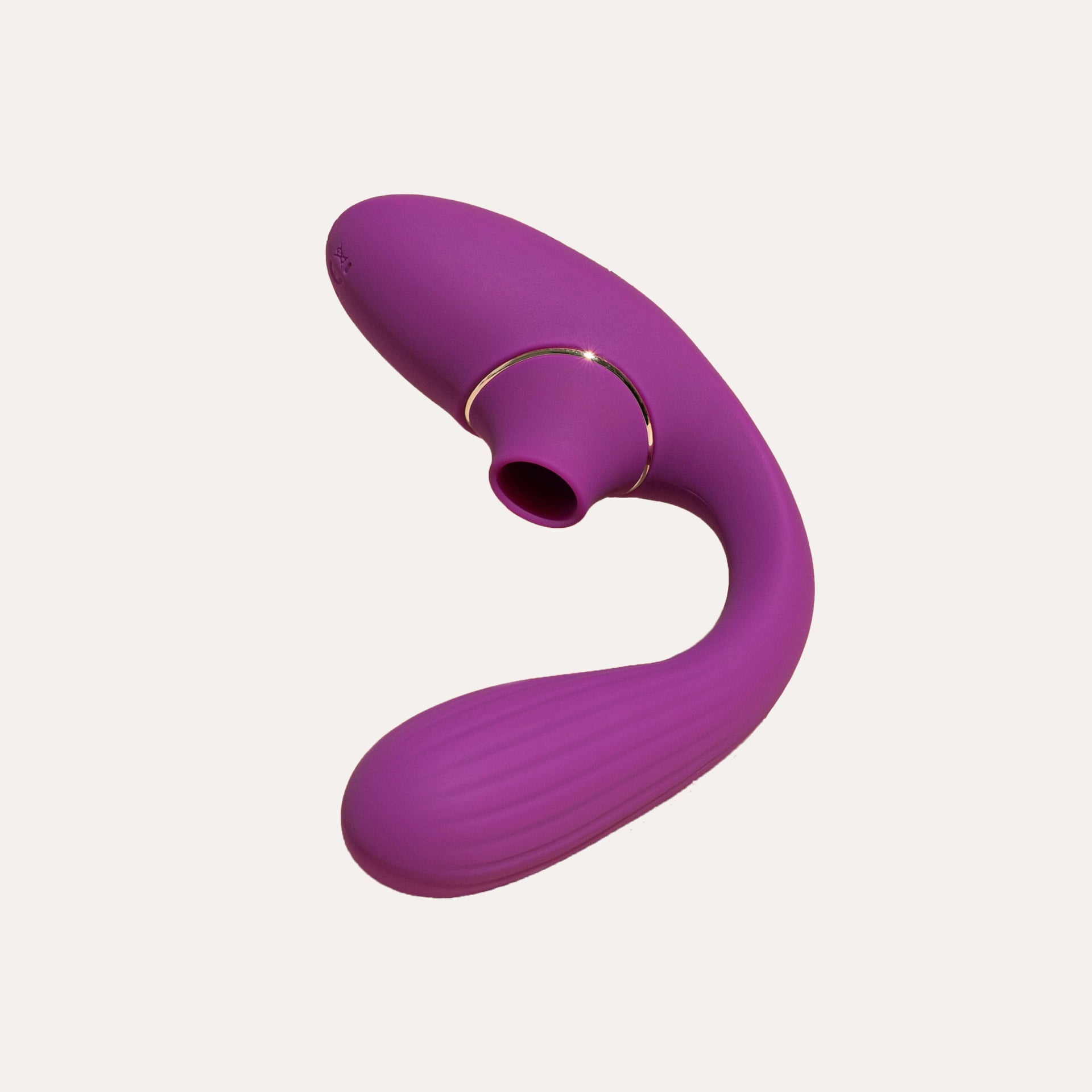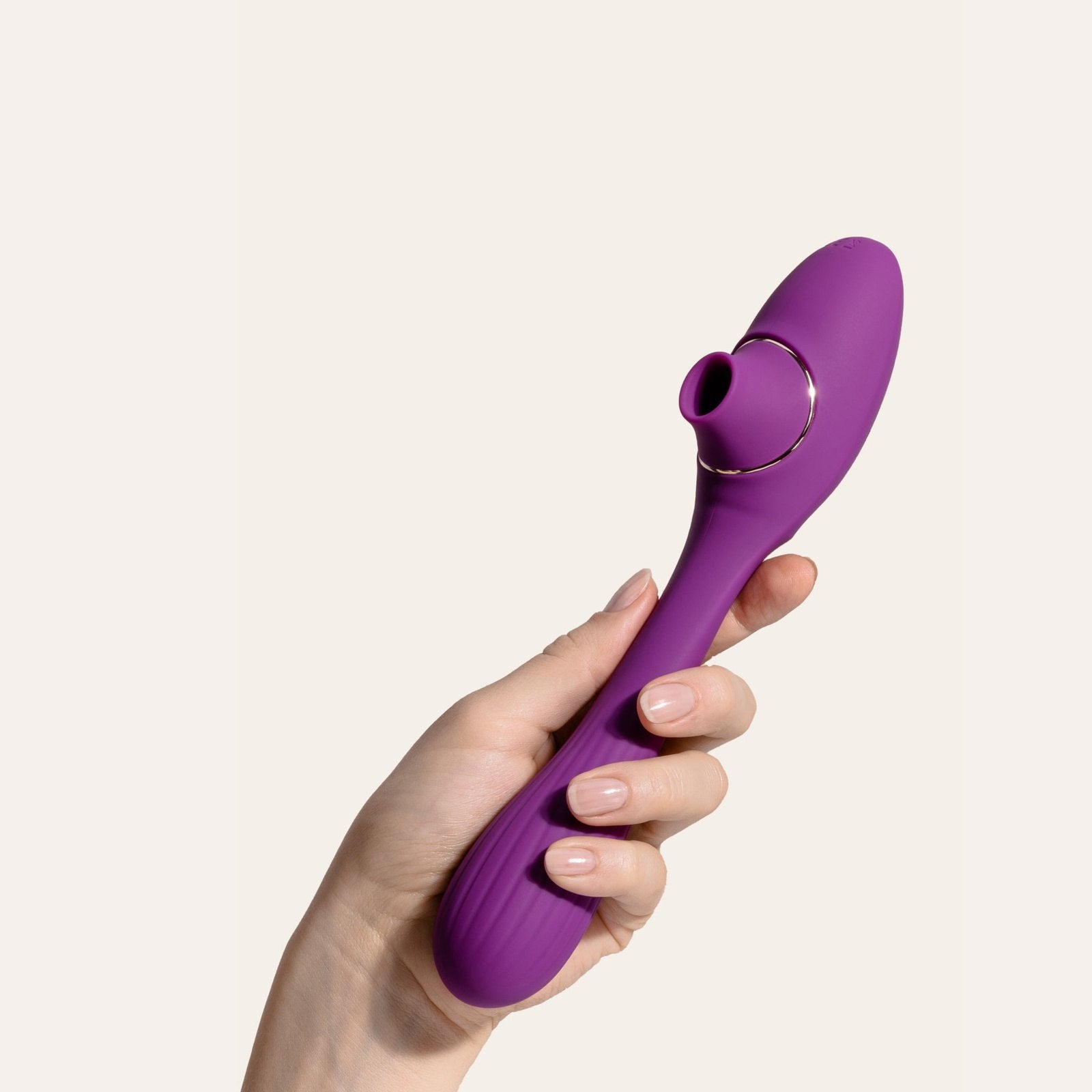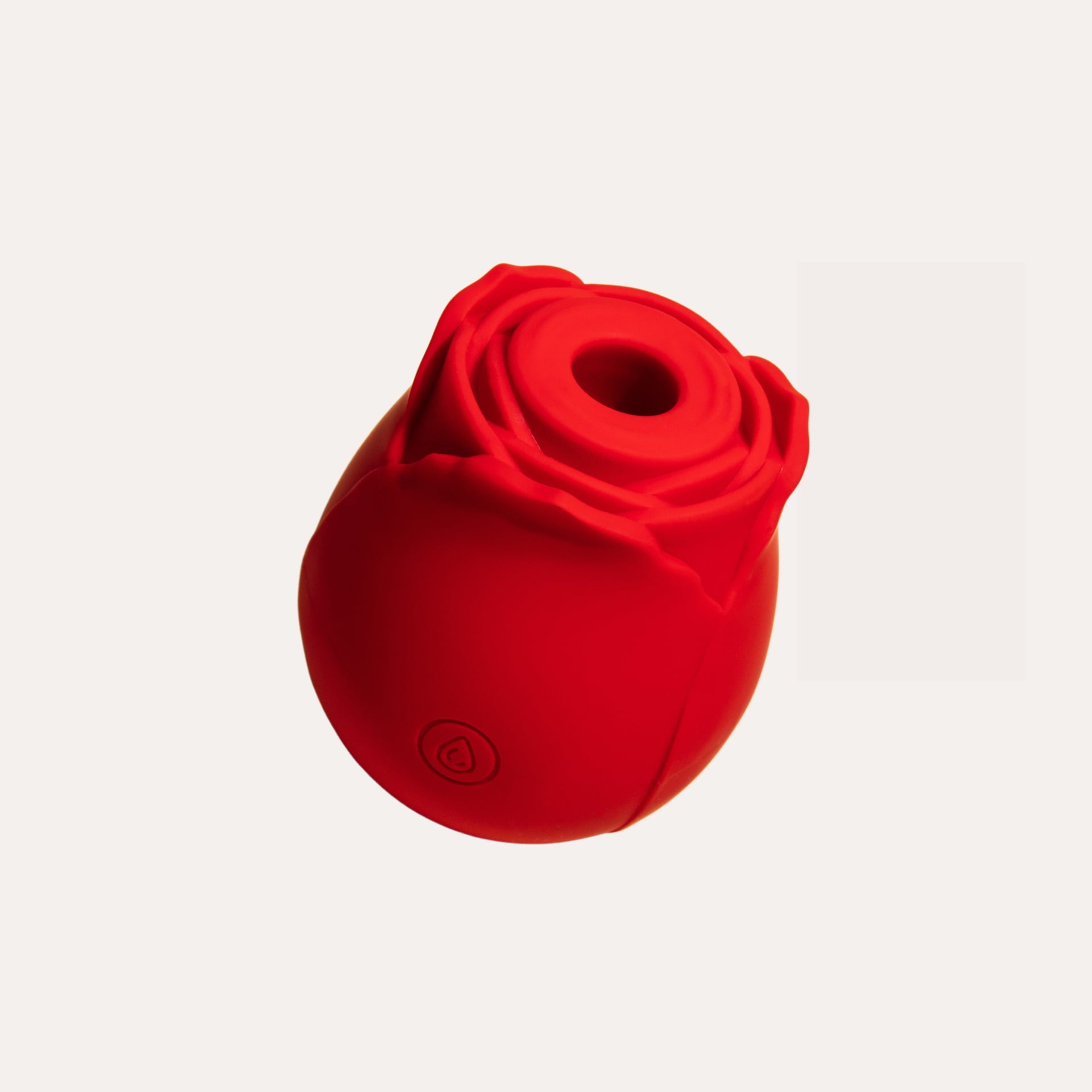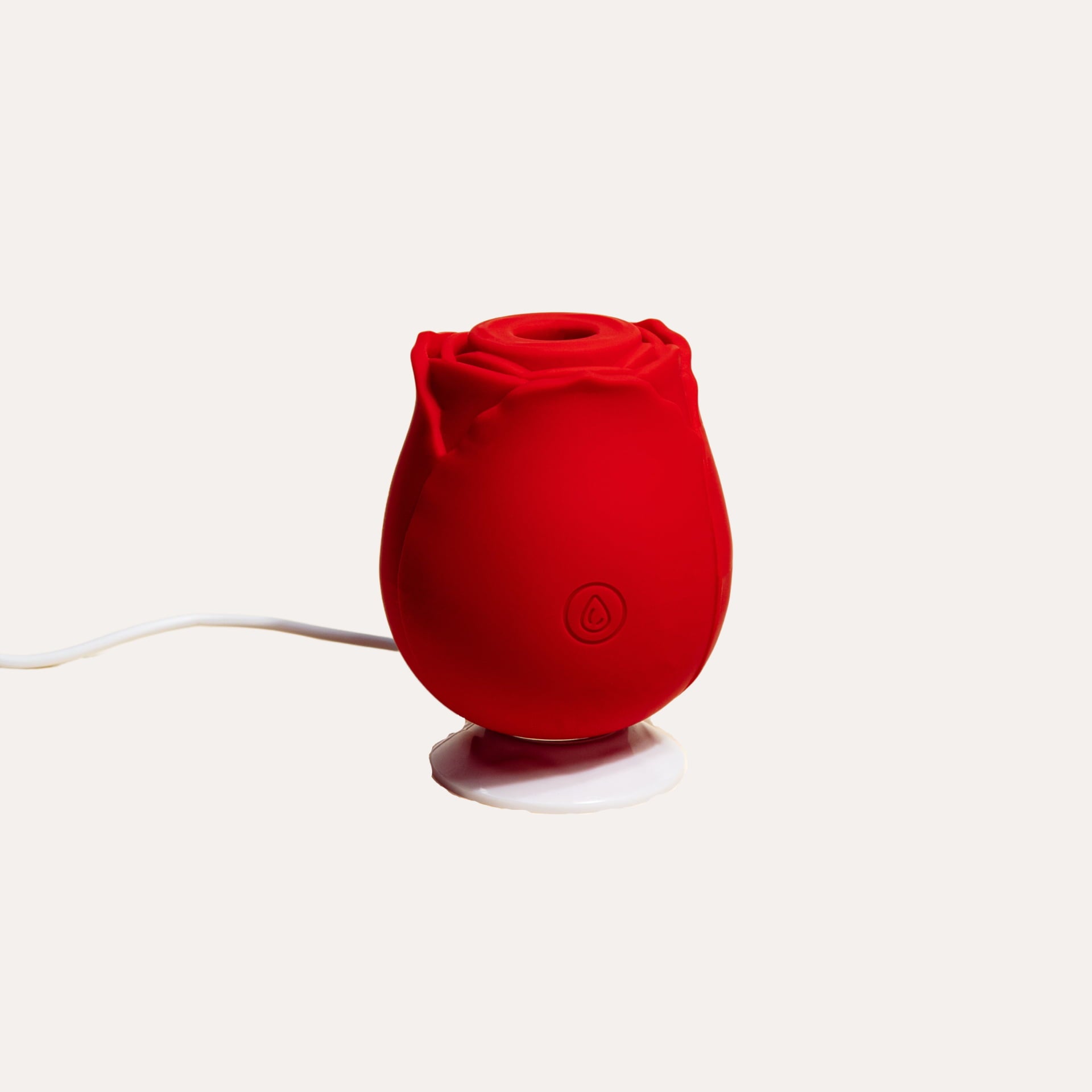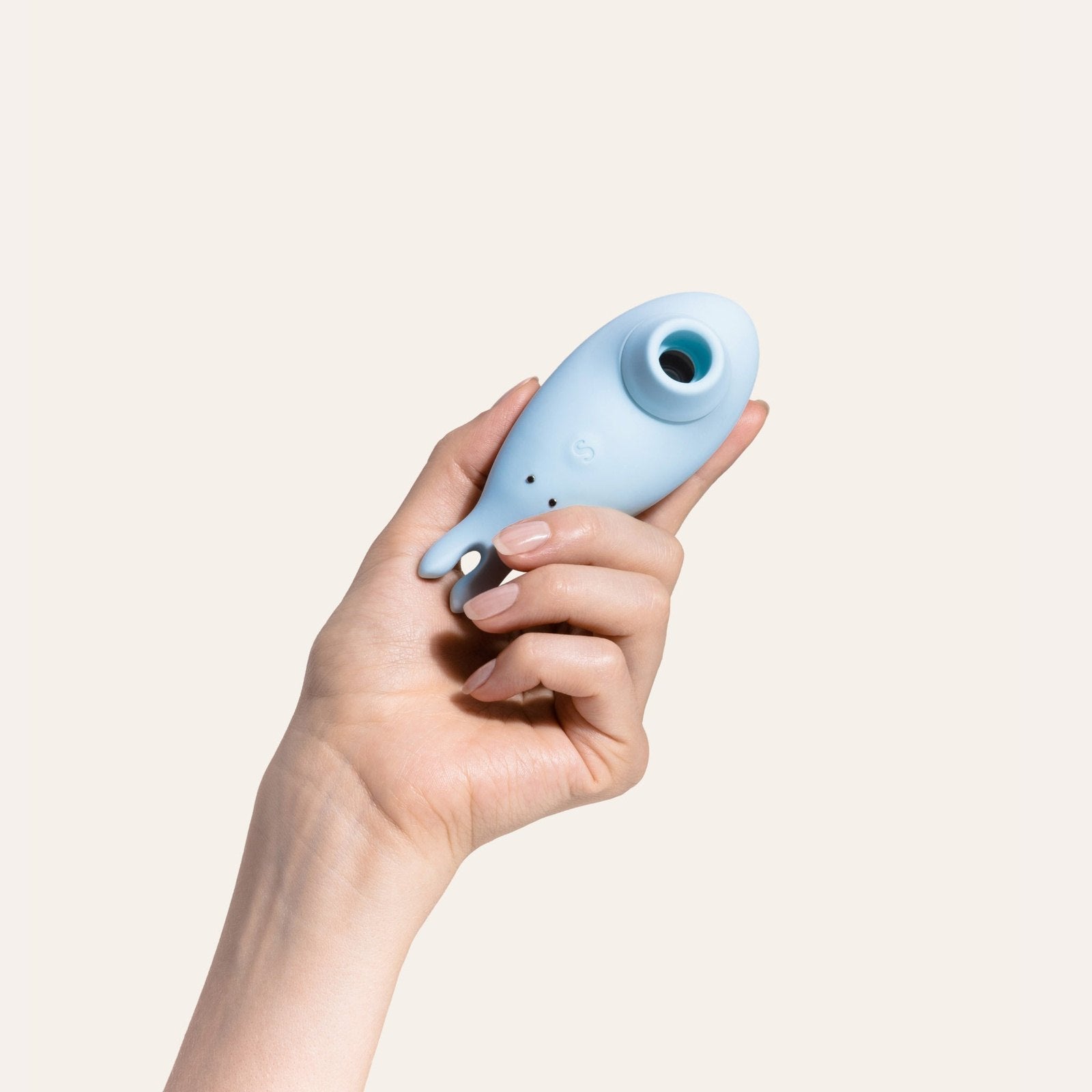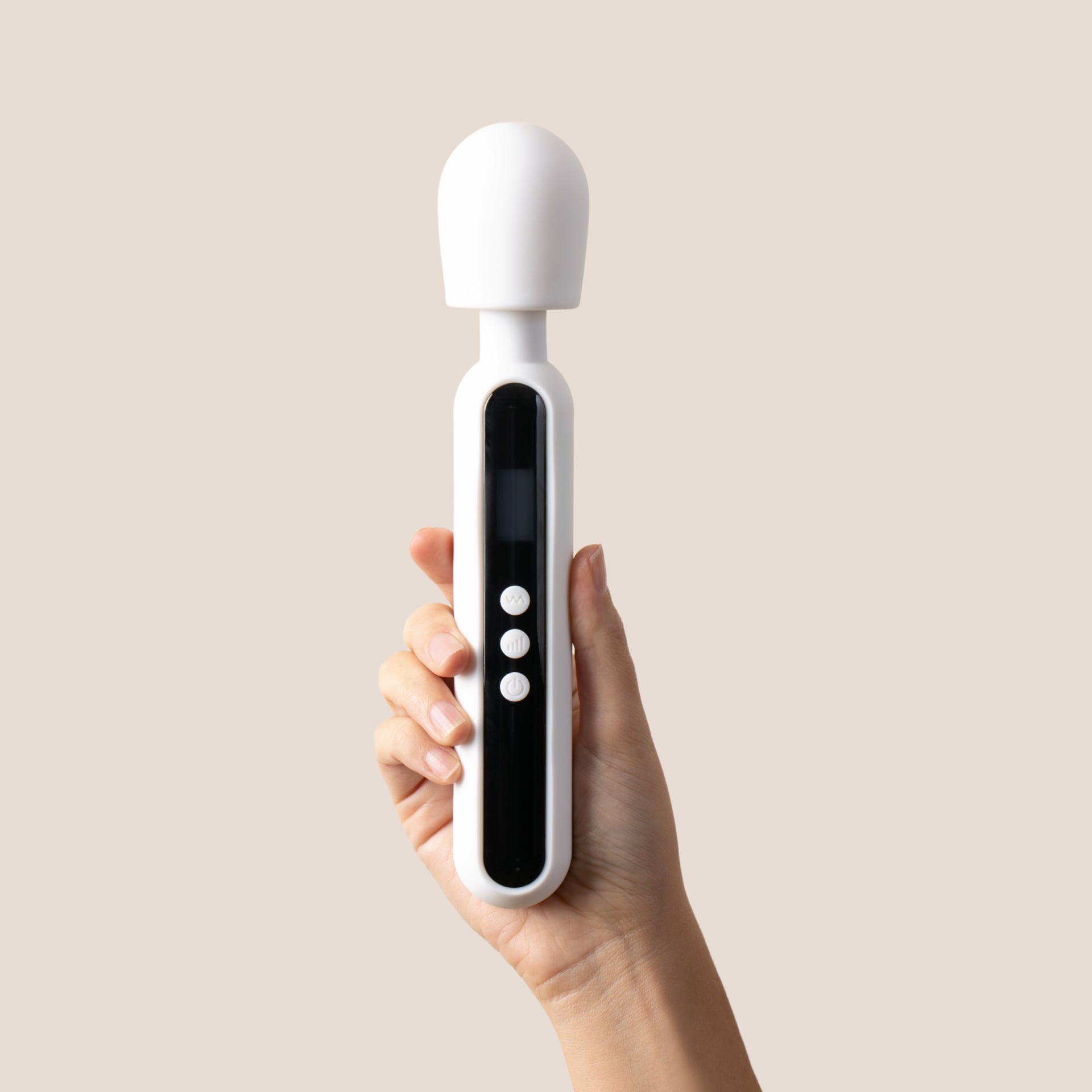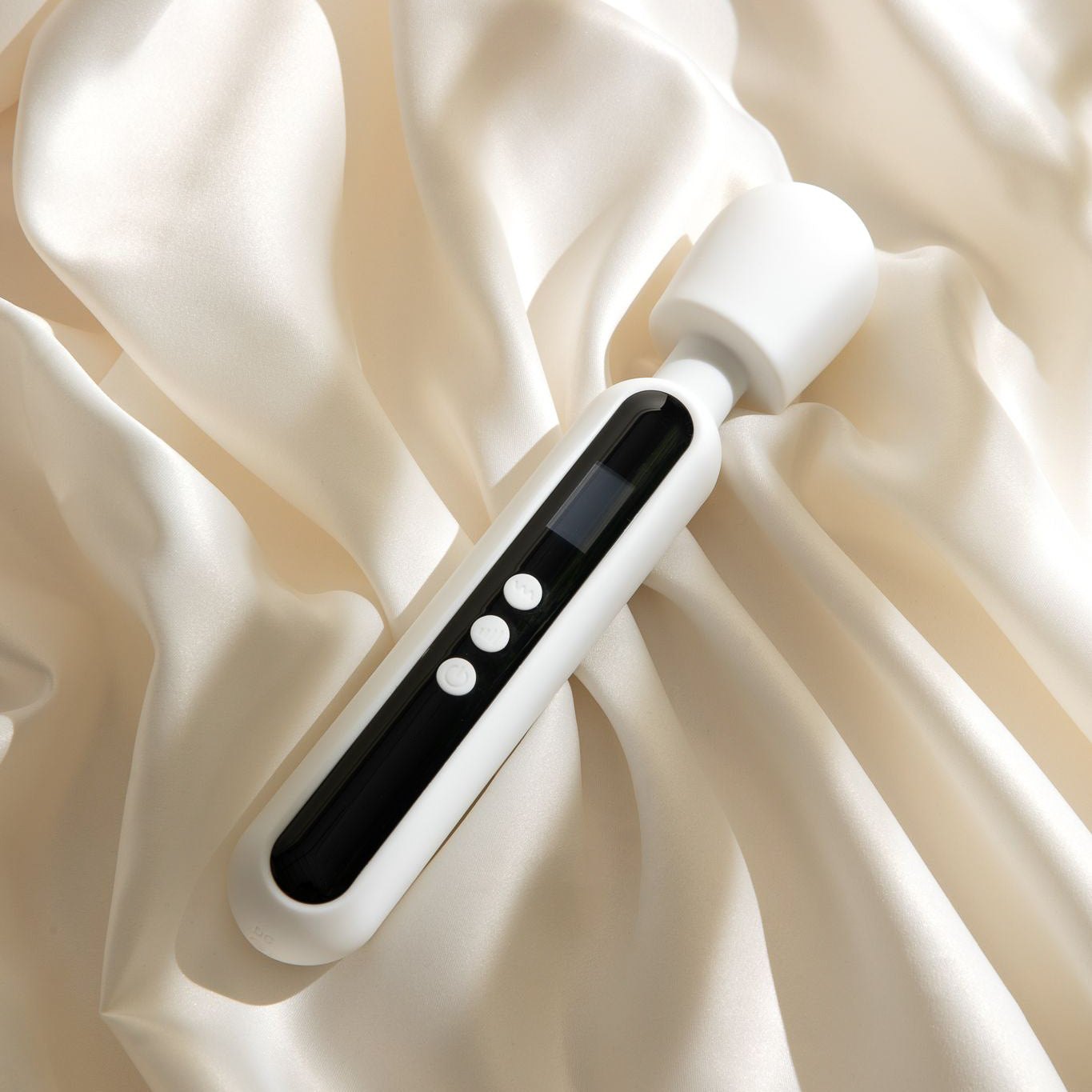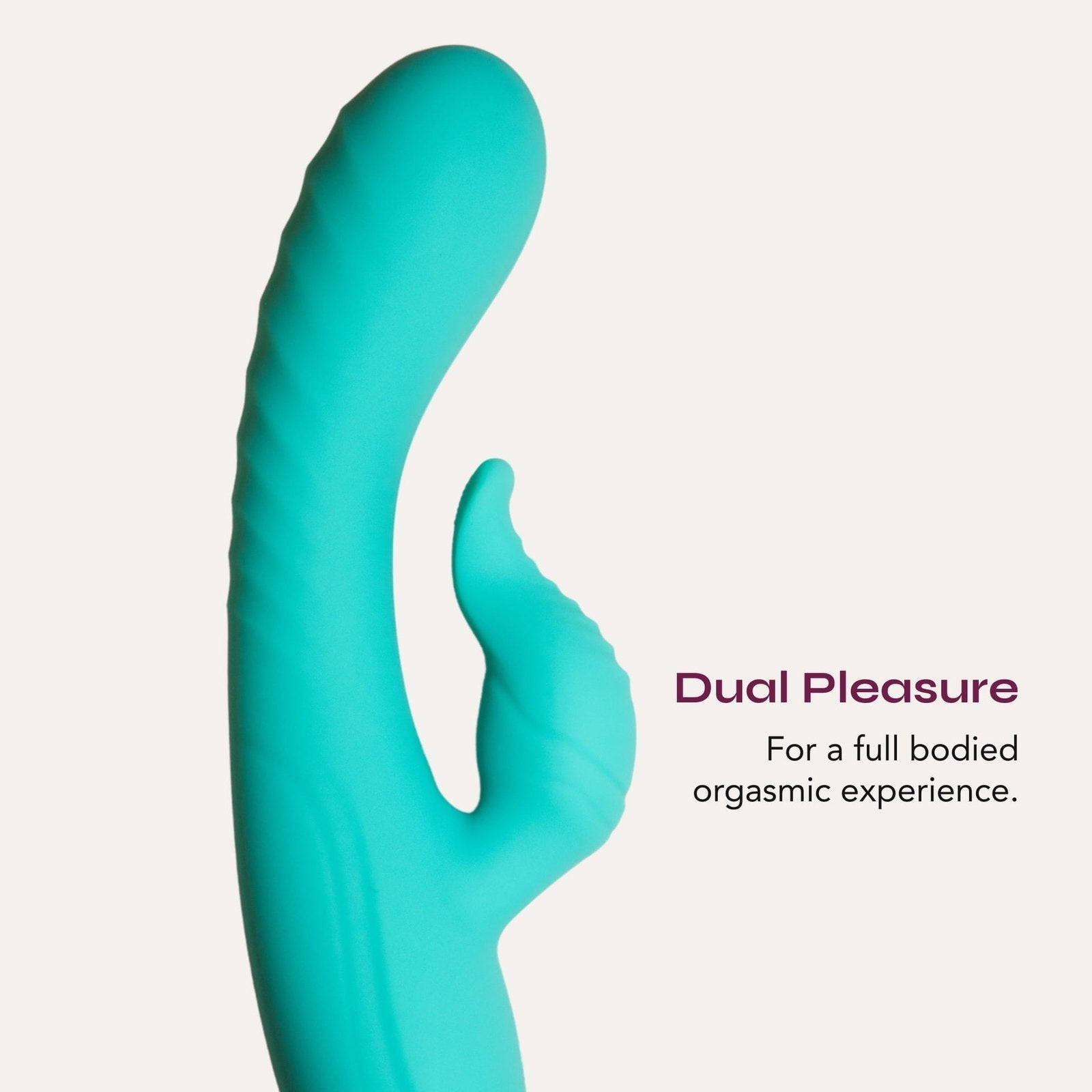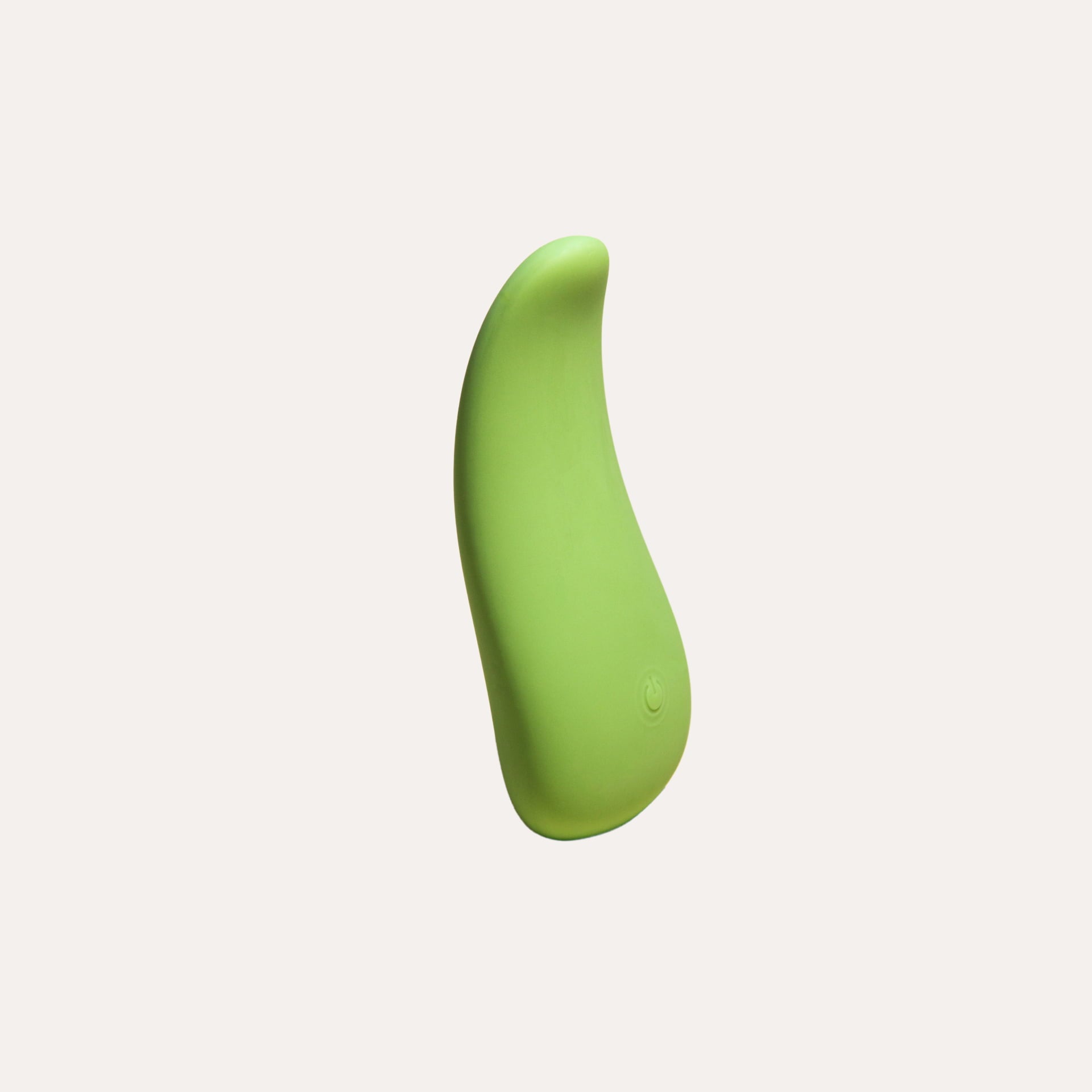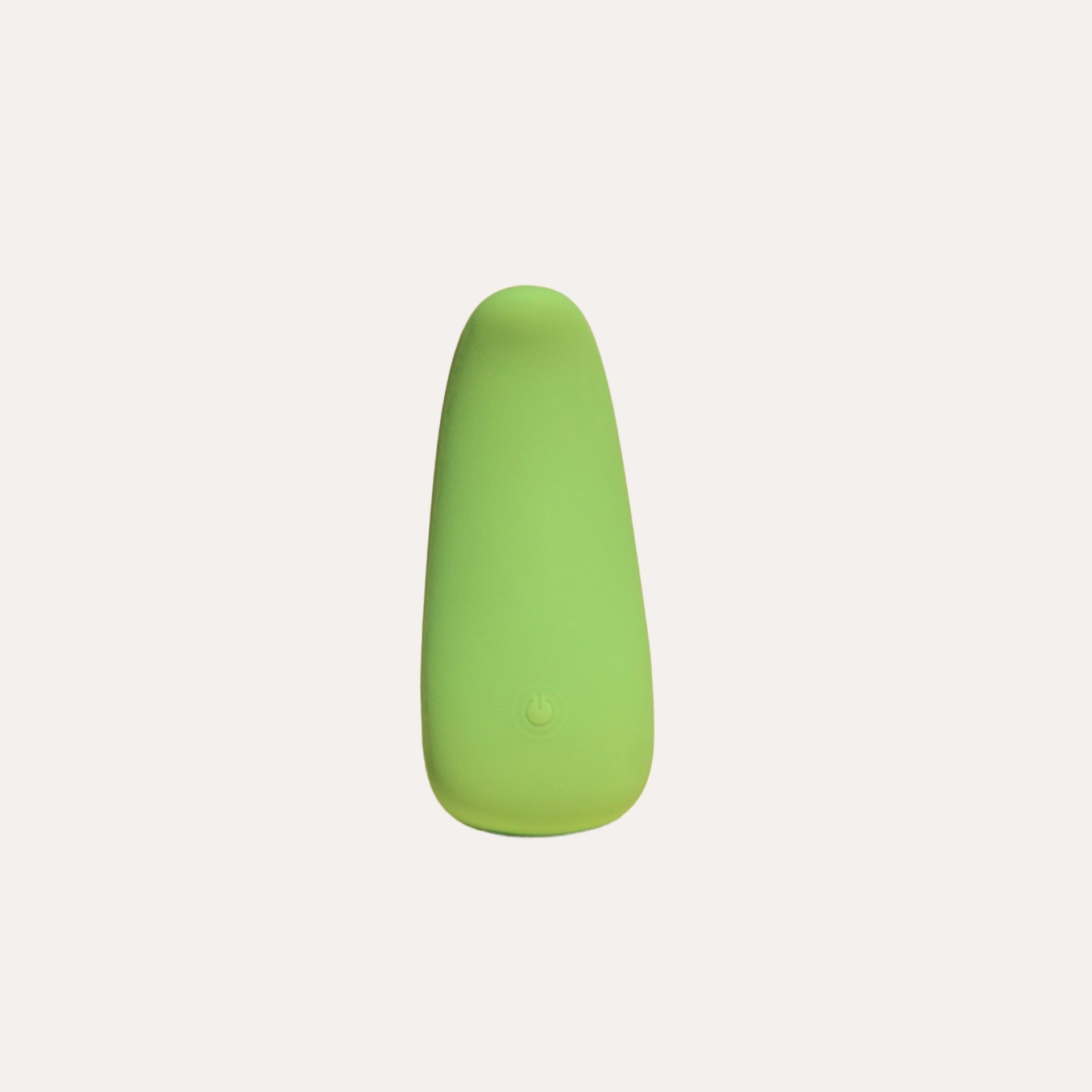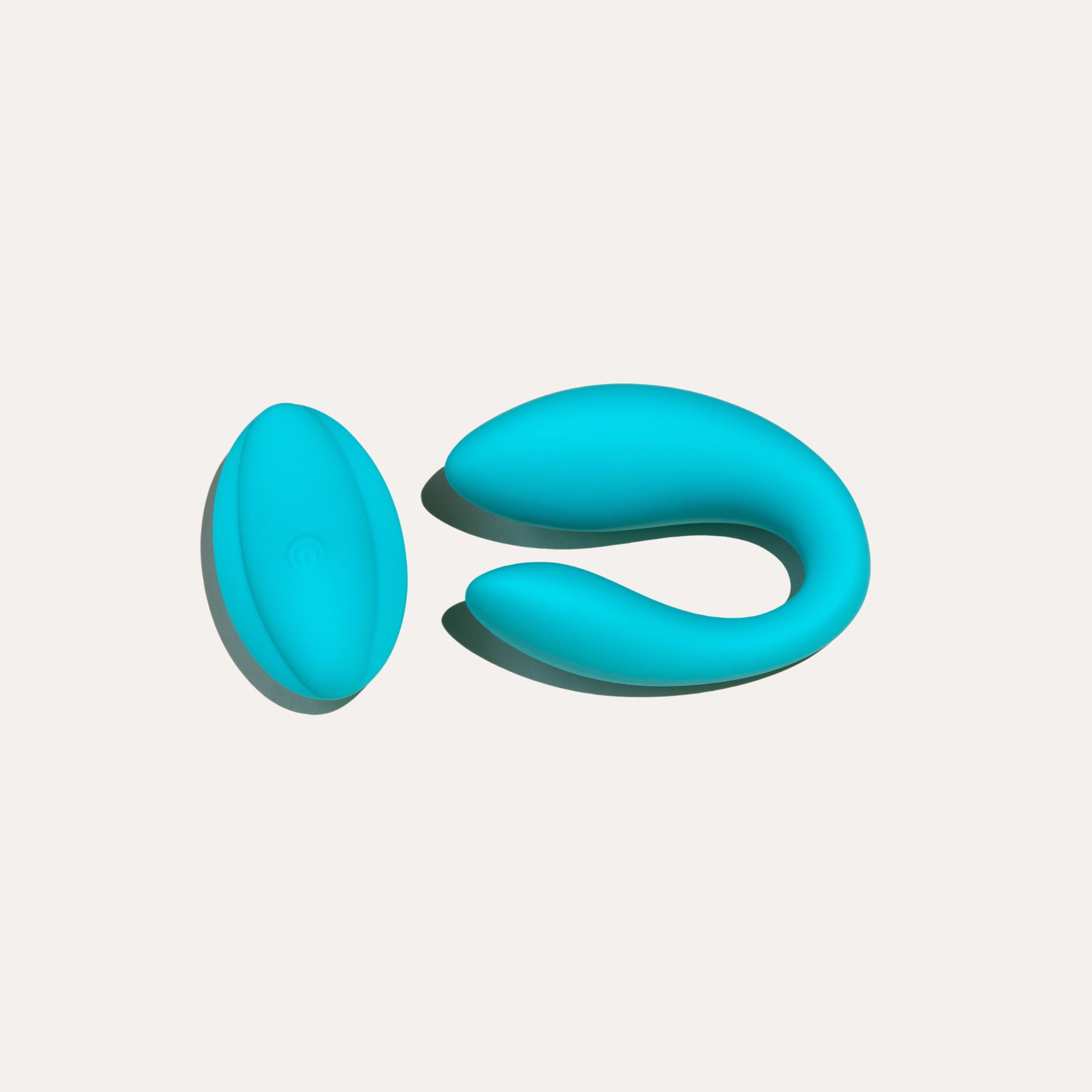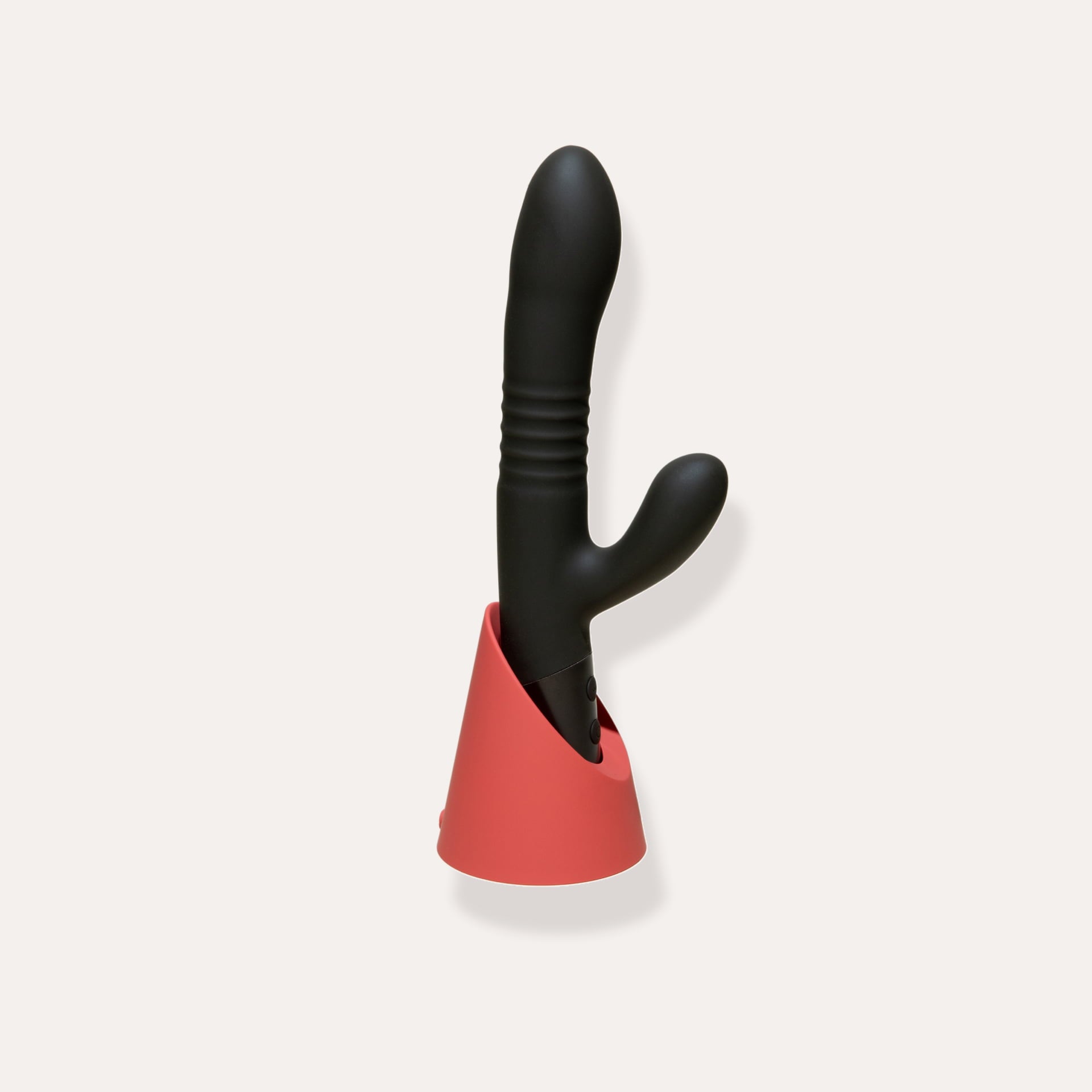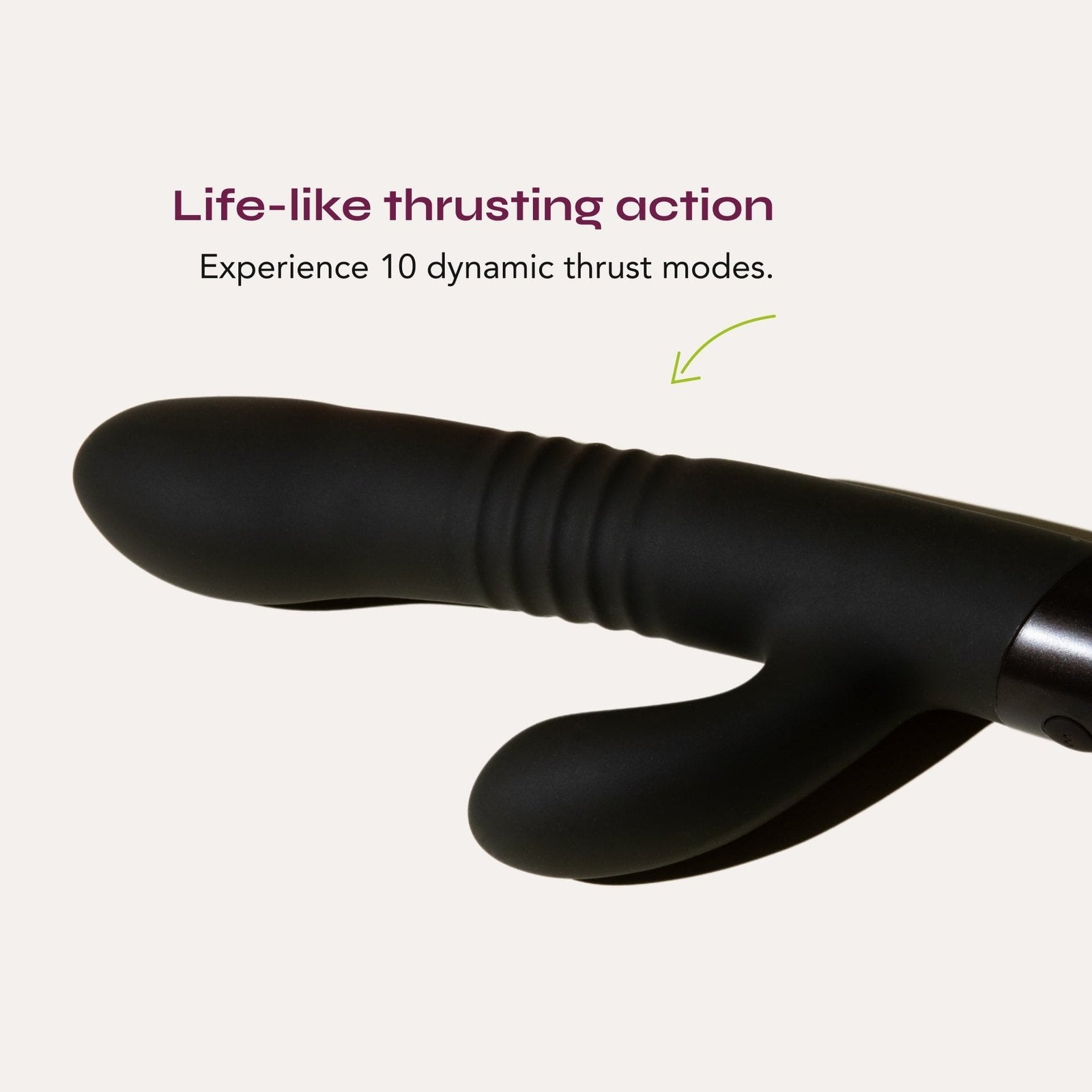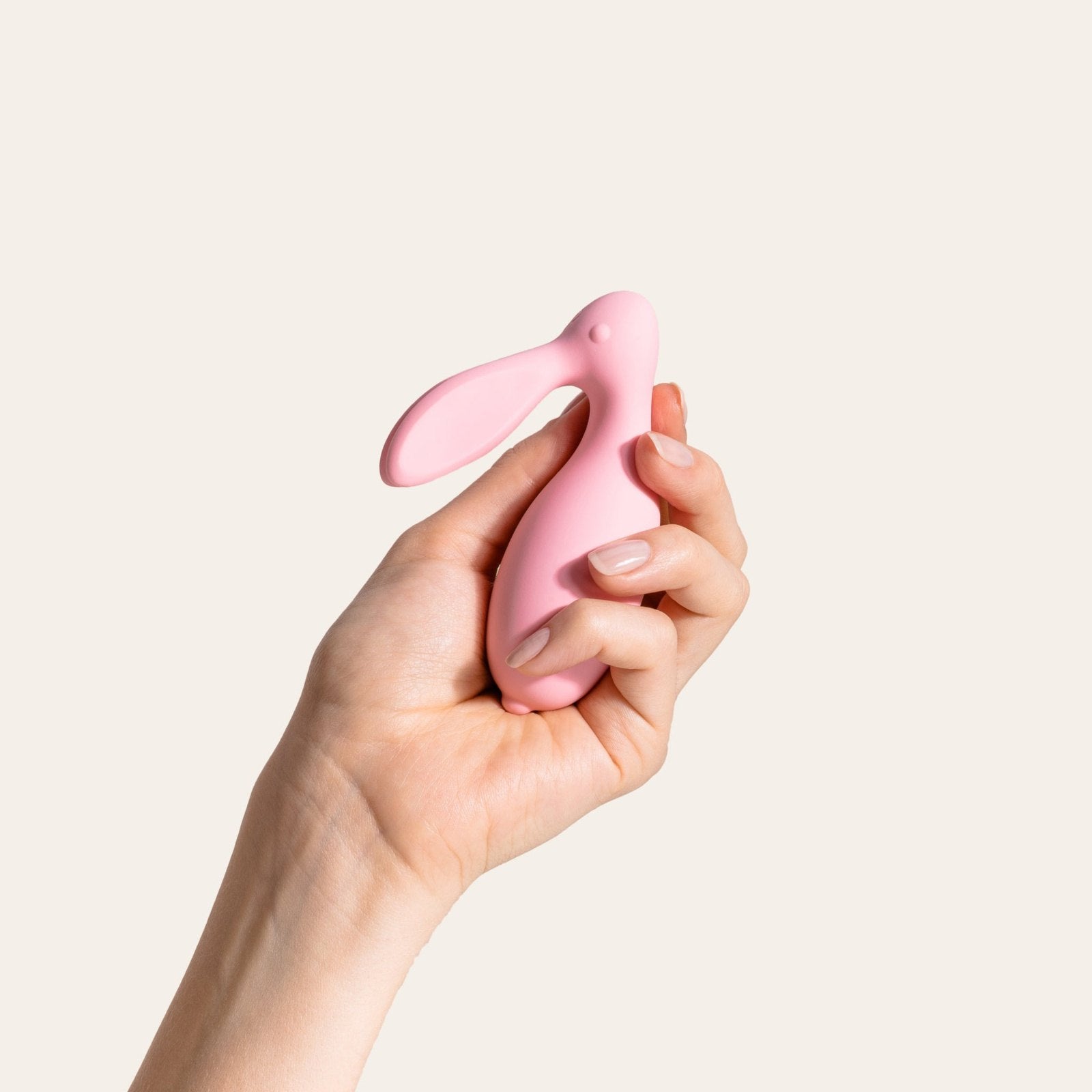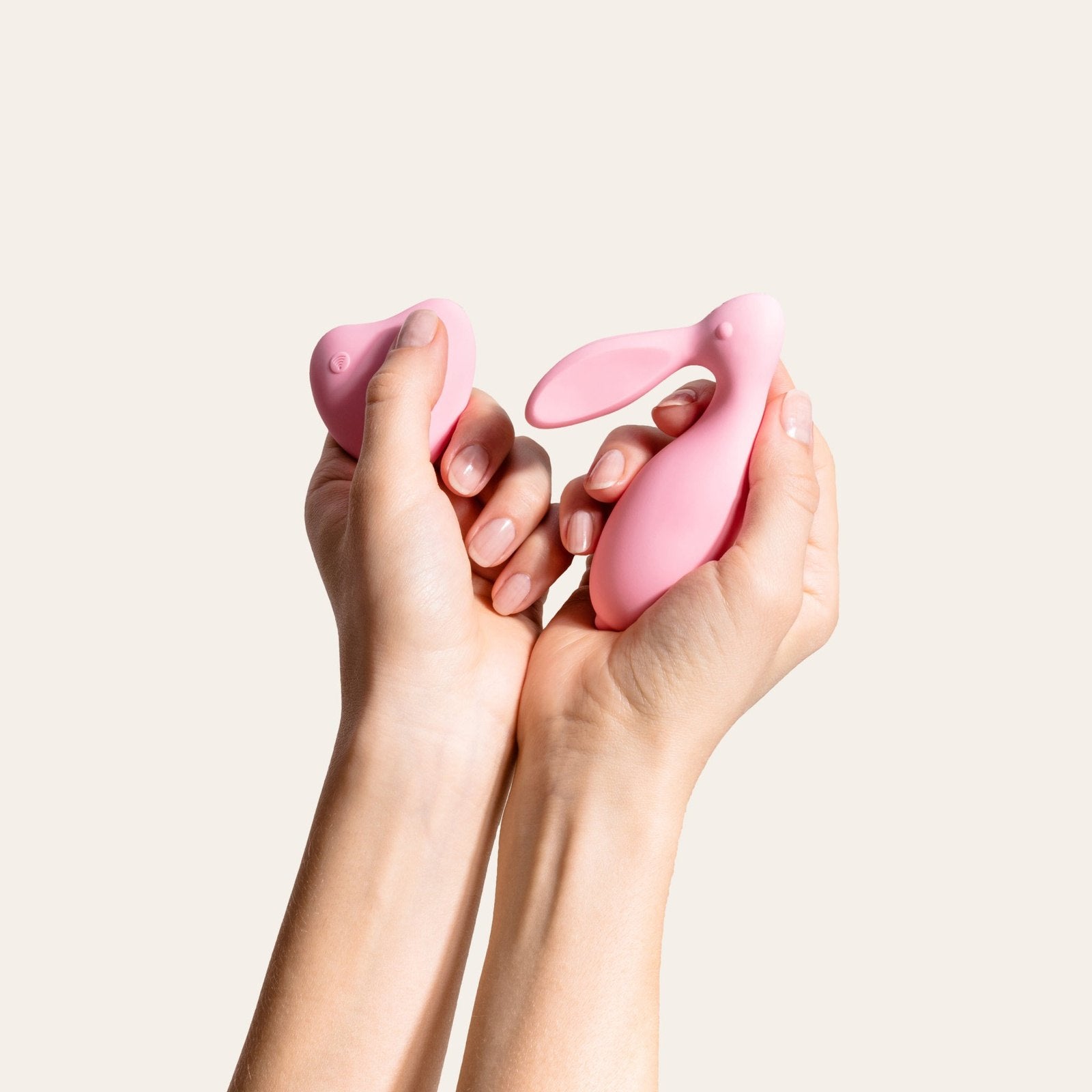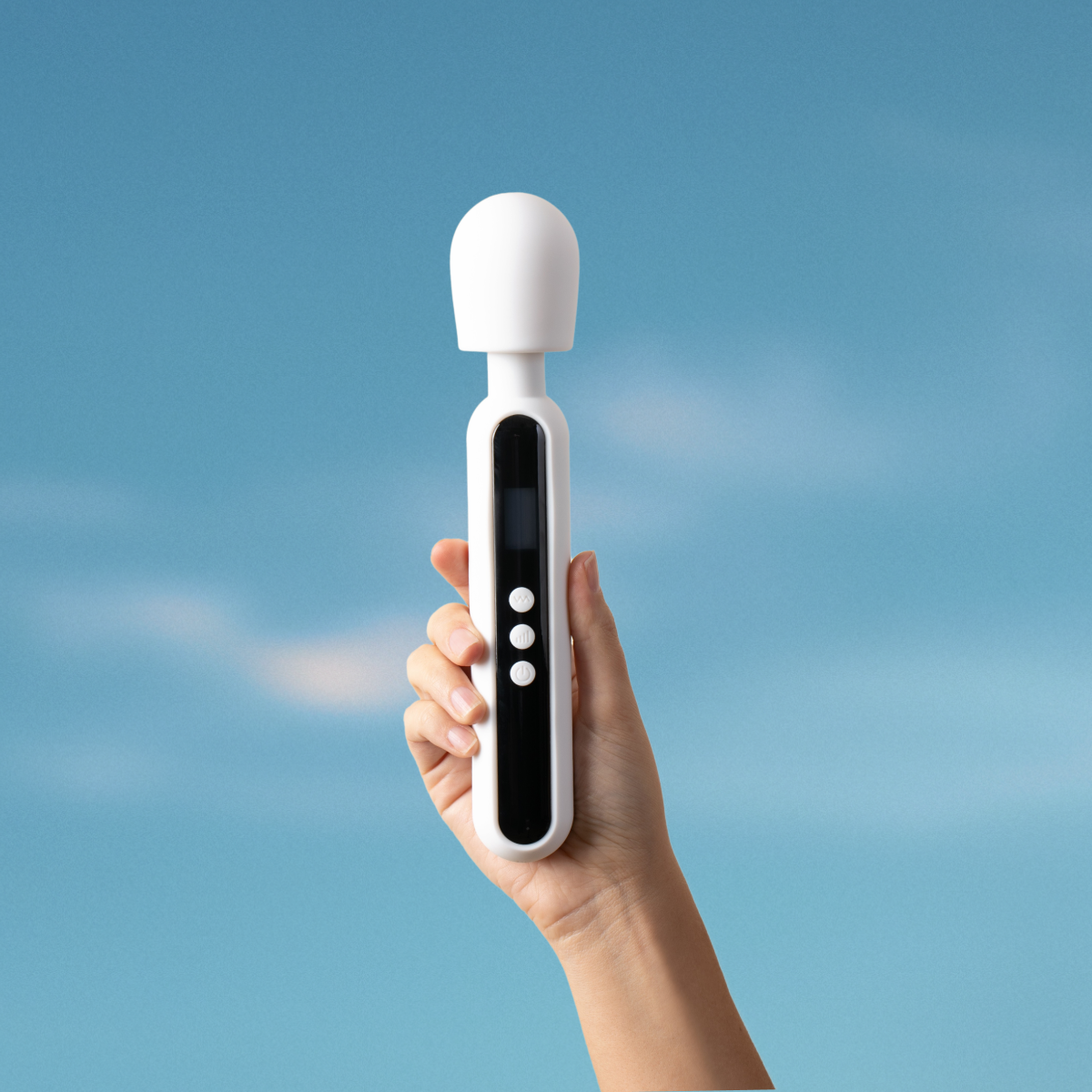If the changes of menopause have turned your sex life from "ohhh yes!" to "oh no," you're not alone. Painful sex during menopause is way more common than you think. But it’s also solvable.
If there's one thing we know for certain —you shouldn’t have to grin and bear it, OR give up sex completely. (Heck no!) There is a way around painful sex post-menopause. Let’s talk about it.
In this guide we’ll offer 5 science-backed steps to reclaim your sex life and kick painful sex to the curb.
How Common Is Painful Intercourse After Menopause?
When I say you aren’t alone in this, I really mean it — 50% of postmenopausal women experience painful sex. (Some estimate up to 84%)
But here’s the serious issue: only 25% of those affected actually seek help. The rest? They suffer in silence.
Why the hush-hush? Maybe it's the taboo, embarrassment, shame, maybe it's the surrender of "just part of getting older." But it doesn’t have to be.
So, now we know how common painful sex is for menopausal women, let's talk about why it happens.
Why Sex Is Painful After Menopause?
How can something that used to feel so good suddenly become so painful?
The answer is: hormones.
When your ovaries slow their production of estrogen, a lot can change for the vagina (internal bits) and vulva (external bits). There are a lot of sciencey reasons for this, but the big issue is a decrease of healthy blood flow.
The Physical Changes
When the body takes the uterus “out of commission,” so to speak, it slows the blood flow to the uterus, cervix, vagina and clitoris.
This reduced blood flow leads to:
- Less "nutrition" for tissues to remain supple, elastic and moist
- Vaginal dryness, which can lead to painful penetration
- Itchy, brittle, and inelastic tissues
- Difficulty receiving penetration as before
- Difficulty reaching orgasm
The result? Painful sex that's absolutely no fun for you.
The Emotional Impact
Once these physical changes start to occur, we add on an emotional layer too:
- Feeling "broken" or ashamed
- Tension in intimate relationships
- Ultimate disconnection from our bodies
But, that's only if we accept these symptoms without intervention. If you are dealing with painful sex during menopause, we urge you to treat this in a holistic way.
So, What's Next?
Let's get into 5 steps to take to get you back to pain-free, orgasmic sex.
5 Step Sexual Wellness Routine For Painful Sex After Menopause
We often take our sexual wellness for granted. For most of our lives, we've been able to simply enjoy it, right? But when our bodies change - be it because of illness, surgery, or a natural decline in sex hormones - we begin to truly understand the importance of a sexual wellness self-care routine. It's in these moments that such a routine becomes indispensable.
Here are 5 steps to reclaiming your sexual wellness and orgasmic self. (Each step brings you closer to pain-free sex.)
#1 Lubrication Solutions: What To Try & How To Use
Lube! Lube! Lube!
This slip and slide not only feels great but, if you deal with painful sex, it's needed for your vaginal tissues to remain pain-free. Personal lubricant is a wonderful, indispensable tool for maximizing pleasure and maintaining vaginal health post-menopause.
You can use lube as a daily moisturizer to keep tissues healthy. And ALWAYS use lube before and during any type of sex. No exceptions!
You can apply lube to your vulva, clitoris, and/or the entrance of your vagina, or you can apply the lube to your partner's penis. (Always a fun build up moment.)
Types of lubricants:
- Water-based: The all-rounder. Safe with condoms and toys, easy to wash off.
- Silicone-based: Long-lasting and great for water play. Not for silicone toys though!
- Oil-based: Super slippery, but a no-go with condoms.
- Hybrid: A mix of water and silicone. Best of both worlds!
Benefits for menopausal women:
- Reduces friction and discomfort during sex
- Helps maintain vaginal moisture
- Can enhance sensation and pleasure
- Protects delicate vaginal tissues
How to choose and use effectively:
- Start with water-based if you're new to lube
- Do a patch test first to check for reactions
- Apply liberally - don't be shy!
- Reapply as needed during intimacy
- Look for pH-balanced options to maintain vaginal health
- Avoid lubes with glycerin if you're prone to yeast infections (many post-menopausal women are)
Worried about using lube with a partner for the first time?
Make using lubricant as sexy or as nonchalant as you want. You could turn it into a sensual part of foreplay, applying it to each other slowly and teasingly. Or, you could simply reach for it casually, like it's no big deal (because really, it isn't!).
And you know what? There's not a man alive that doesn't love the feeling of being lubed up. Trust us on this one. The added slickness can be a major turn-on for many partners.
When using lube with a partner, communication is key. Try these phrases to make it feel natural and exciting:
- "I want to feel every inch of you. This will make it even more intense."
- "This makes everything more exciting for me."
- "I love how this helps me feel you inside me."
- "Let's try this. I bet it'll feel amazing for both of us."
Remember, confidence is sexy. By introducing lube with enthusiasm, you're showing your partner that you're invested in maximizing pleasure for both of you. And that, in itself, is a huge turn-on.
#2 The Surprising Health Benefits of Vibrators & Your New Pre-Sex Routine
Ladies, let's talk about your new best friend: the vibrator.
Vibrators are therapeutic tools, not toys.
For menopausal women, vibrators are a powerful tool in your sexual wellness arsenal, especially when dealing with painful sex. Let's get into why that is, and how to incorporate them into your life.
Why Vibrators are a Game-Changer:
- Increase blood flow to your intimate areas
- Boost natural lubrication
- Awaken nerve endings and enhance sensitivity
- Help maintain vaginal elasticity
The Science Behind the Buzz:
Studies show that regular vibrator use can significantly improve sexual function, decrease pain, and even reduce symptoms of vaginal atrophy. In just 3 months, many women report increased orgasms, lubrication, and overall sexual satisfaction.
The Secret to Pain-Free Sex Post-Menopause: Build That Arousal!
Here's where many couples go wrong: rushing to penetration before the body is fully aroused. This is a big no-no, especially as we age.
Here’s Your New Pre-Sex Routine:
- Start with external stimulation using your vibrator
- Aim for at least 20-30 minutes of foreplay and vibrator play
- Pay attention to your body's signals - don't rush!
- Only move to penetration when you're feeling fully aroused and well-lubricated
- This can not only decrease pain but can be explosively orgasmic for you
Remember: At 30, you might have been ready in 5 minutes. At 65, your body needs more time to warm up - and that's perfectly normal!
Engage In Regular Masturbation (!!!)
Regular clitoral stimulation has been proven to decrease painful penetration. But it's more than just a quick fix - it's a vital part of your sexual wellness routine.
Here's why:
- Boosts Blood Flow: Regular stimulation increases circulation to your genital area, promoting tissue health and natural lubrication.
- Maintains Elasticity: It keeps your vaginal tissues flexible and responsive, reducing discomfort during penetration.
- Increases Sensitivity: Consistent self-pleasure can help you stay in tune with your body's sensations and responses.
- Reduces Stress: Orgasms release feel-good hormones that can lower stress and improve overall well-being.
- Strengthens Pelvic Floor: The contractions during orgasm are like a mini-workout for your pelvic muscles.
Aim for at least 2-3 self-pleasure sessions a week. Don't focus solely on orgasm - enjoy the journey of exploration and sensation. Use this time to really get to know your changing body.
Remember, masturbation isn't just about sexual release - it's a powerful tool for maintaining vaginal health and comfort.
Choosing Your Vibrator: Look for:
- External clitoral vibrators (not dildos!)
- Adjustable intensities
- Soft, body-safe materials
- Rumbly motors for deeper stimulation
- Easy-to-hold designs (arthritis-friendly!)
Pro Tip: Many menopausal women love air pulse vibrators for targeted clitoral stimulation.
Read More: The Best Vibrator For Older Women: Boost Libido & Lubrication
Remember, building arousal isn't just about avoiding pain; it's about maximizing pleasure. So take your time, explore with your vibrator, and rediscover the joy of pain-free, deeply satisfying sex. Your body will thank you!
#3 Breathwork: Your Secret Weapon for Intimacy
I can almost hear you question this: “Breathing?!”
But yes. Breathing.
Your breathing directly impacts your arousal, and your arousal directly impacts your natural lubrication and eases pelvic floor muscles; in turn this impacts your ability to receive penetration comfortably.
Let's break it down:
When you're stressed or anxious (which can happen when sex has been painful), your breathing becomes shallow. This is stressful to the body, causing muscles to tense - including those in your pelvic floor. Tense muscles? Not great for comfortable penetration.
But here's the magic: deep, slow breathing does the opposite. It signals to your body that you're safe and relaxed. This increases blood flow to your genitals, which can enhance arousal, natural lubrication and help your pelvic floor muscles relax.
Try this simple exercise:
- Sit comfortably or lie down.
- Place one hand on your chest and the other on your belly.
- Breathe in slowly through your nose for a count of 4, feeling your belly rise.
- Hold for a count of 2.
- Exhale slowly through your mouth for a count of 8.
- If you can, try to imagine the breath is moving into your hips.
- Repeat for 5-10 minutes.
Practice this daily, and especially before intimate moments. You might be surprised at how such a simple act can transform your sexual experience.
#4 Vaginal Dilators: A Gentle Approach to Comfort
Vaginal dilators might sound intimidating, but they're actually a gentle, effective tool for many women experiencing painful sex.
What are they? Smooth, cylinder-shaped devices that come in gradually increasing sizes. Think of them as a step-by-step training program for your vagina.
Who are they for?
- Menopausal women with vaginal discomfort
- Anyone experiencing pain during penetration
- Women recovering from certain pelvic procedures
How do they help?
- Gently stretch and desensitize vaginal tissues
- Increase blood flow to the area
- Build confidence in your body's abilities
Quick tips:
- Start with the smallest size that's comfortable
- Go SLOW
- Use plenty of lube
- Practice regularly, but don't rush progress
- Combine with relaxation techniques
Remember, it's not about pushing your limits. It's about patient, consistent care for your intimate health. With time, dilators can help make penetration more comfortable and enjoyable.
Always consult with your healthcare provider before starting a dilator routine, especially if you have any underlying conditions.
#5 Medical Treatments: When to Consider Them
While vibrators and dilators can work wonders, sometimes you might need extra help. That's where medical treatments come in. (Trying all options is also a great tactic.)
There's a range of medical treatment options available, from hormone therapies to non-hormonal medications, all designed to address vaginal dryness, tissue health, and discomfort during sex. Each option has its own benefits and considerations.
The key here? Professional guidance is crucial. Your healthcare provider can help determine if medical treatments are right for you, taking into account your overall health and specific symptoms. Talk to your doctor about hormone replacement therapy (HRT) or low dose estrogen treatment.
Over-the-counter options include things like:
- Vaginal moisturizers: These can be used regularly to help maintain vaginal moisture and comfort. They're different from lubricants as they're designed for ongoing use, not just during sexual activity.
- Personal lubricants: Water-based, silicone-based, or hybrid lubes can significantly reduce friction and discomfort during sex. Look for pH-balanced options specifically designed for sensitive menopausal tissues.
- Vitamin E suppositories: Some women find these helpful for vaginal dryness, though it's always best to consult with a healthcare provider before use.
Remember, seeking medical help isn't a last resort - it's a proactive step in your sexual wellness journey. Don't hesitate to discuss your concerns with your doctor.
Key Takeaways: Your Guide to Overcoming Painful Sex During Menopause
Painful sex after menopause is common, but it doesn't have to be your new normal. We've explored several strategies to help you reclaim your sexual pleasure:
- Lubrication: Finding the right product to enhance comfort and sensation
- Vibrators: Using these tools to increase arousal and improve overall sexual health
- Breathwork: A simple yet effective tool for relaxation and arousal
- Vaginal Dilators: A gentle approach to gradually improve comfort during penetration
- Medical Treatments: Understanding when to seek professional help
Remember, the key to overcoming painful sex during menopause is a combination of self-care, the right tools, and open communication with both your partner and healthcare provider.
Every woman's journey is unique, so be patient with yourself as you explore what works best for you. With persistence and the right approach, you can rediscover pleasurable, pain-free intimacy.
Explore our range of best selling vibrators and massagers.
Want a deal?
Use code: MYPLEASURE15 for 15% off + free & discreet shipping.
XOXO,
BerryLemon



